A special report on how the houses are warmed in Novooleksiyivka, Kherson oblast.
The further you move from the capital, the worse the roads and streets are in villages and towns, and the more simple houses with less comfort you can see. This ‘outskirts law’, especially the rural one, does not surprise anyone. But when breaking free from the capital bustle, you see with your own eyes the conditions which people live in there, it is impossible to remain indifferent.
Old lady Saide shuffles to her gate. Mercedes small dropside lorry and GAZelle tented truck arrived to her gate. Several men wearing work clothes hurriedly carry white sacks into her courtyard.
― Five, six, ― counts one of them loudly. ― Esken, two more sacks! - says he briefly to the guy, standing in the back of the truck, deftly pulling out the sacks, and then passing them down.
Men do not speak much and work pretty fast. Their moves seem to be well coordinated. They unload round timber from the GAZelle truck, then put firewood into a garden one-wheel barrow, and take it to the courtyard near the sacks.
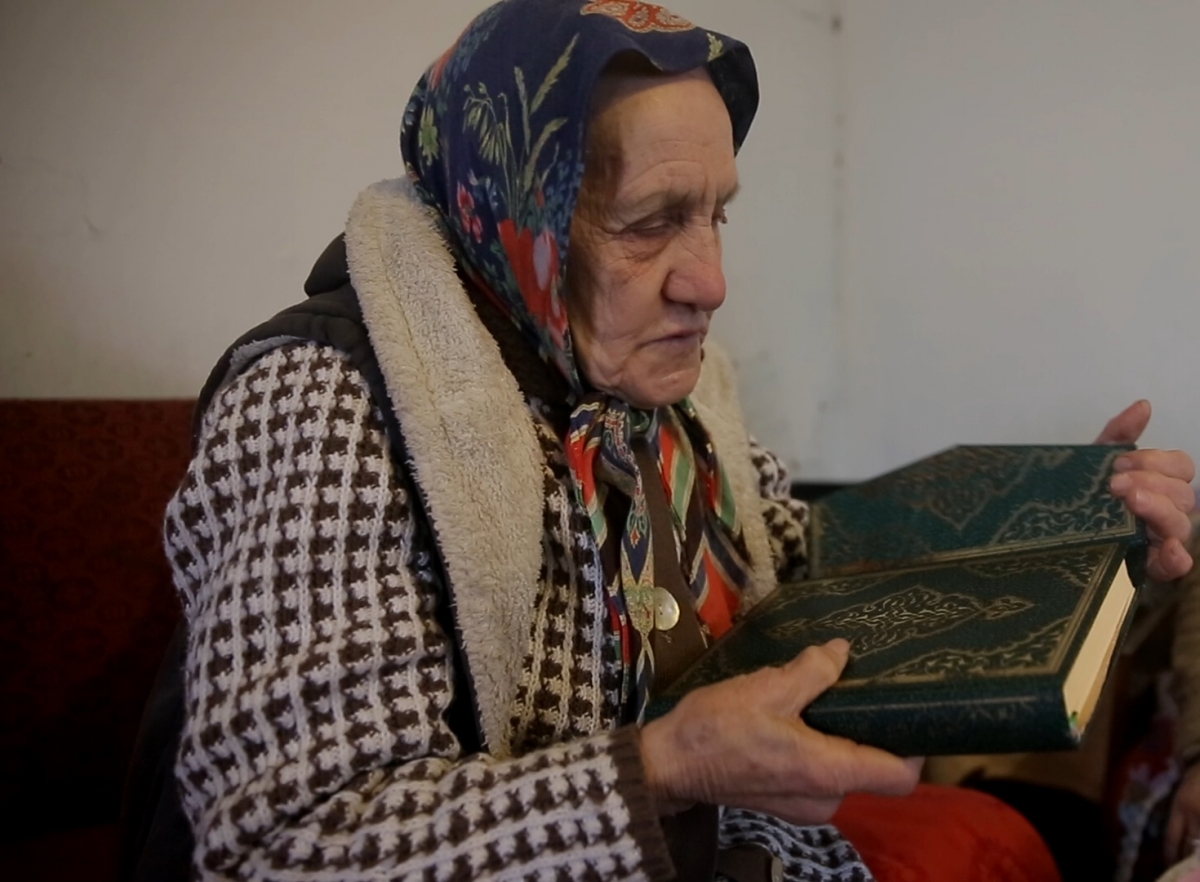 Saide-khanum has not understood at first what is happening. She knows these men though ― they are her fellow villagers. And the higher one is the local mosque imam.
Saide-khanum has not understood at first what is happening. She knows these men though ― they are her fellow villagers. And the higher one is the local mosque imam.
― Selam aleikum, khartana! (Peace be upon you, grandma!) Nasylsynyz? (How are you?) ― one of the men asks an old woman in Crimean Tatar language. Switching to Russian, he adds ―Here is the coal.
Novooleksiyivka is an urban-type settlement located in the very south of the Kherson region. There is about a thirty kilometres distance from here to the administrative border with the occupied Crimea. After 2014, the railway junction terminal of this settlement has become of great importance. Long-distance trains previously travelled to Simferopol arrive here now. Almost a half of about 11 thousand local residents are Crimean Tatars. They have lived here for a long time, since the middle of the last century. In the 1960s, Crimean Tatar families tried to return to Crimea from the places of deportation. Some of those who couldn’t come back, settled here, in the southern Ukrainian steppe.
Old lady Saide, surprised by the attention and sudden help she has got, invites the photographer, me, and other men to come in. It's cold outside, and that’s essential according to the Crimean Tatars’ hospitality rules. An old lady reverently took her main relic off the wall. That’s Quran. She kisses it for three times, puts it to her forehead and then comes to the sofa.
“This is what I inherited from my father. We took it with us to the place of deportation; when I was getting married this Quran was with me. I am still keeping it.”
Saide-khanum carefully opens the Holy Book and starts reading the first sura, Al-Fatiha.
The hostess offers a cup of coffee to the sudden guests, but the men in her courtyard have already unloaded the coal, which means it's time to move on. Winter days are short, and they need to have delivered as much coal as possible before dusk. We politely refuse and go out. An old lady puts her palms together and prays almost to herself in Crimean Tatar and Arabic:
― May Allah be pleased with you, children! Thank you very much for your help, may the Almighty protect your health, your families and children! May your life be long!
While we are going out, Saide-khanum keeps thanking for the relief and saying prayers.
Like many other urban-type settlements in Kherson oblast, Novooleksiyivka has not been supplied yet with gas. Local residents have to heat their homes with coal and firewood. This is a big challenge for many, especially, low-income families, elderly couples and lonely old people. Chopping wood, carrying heavy buckets and sacks of coal, stoking the stove are not an easy thing. But first you need to buy it, and, sometimes, people have to spend their monthly retiring pension for a ton of coal and firewood.
—Hurry up, guys —urges Useyin Tohlu, the imam of Novooleksiyivka mosque.
He is in a hurry and rushes everyone. We got into his car and came after Mercedes and Gazel trucks. Usein has clear voice, as befits an imam, strong look, and vide step. He drives a car with one hand and keeps holding his mobile phone in another almost of the time. He makes calls, answers calls, and gives some orders; during short breaks we have a quick word or joke a little.
― Look, here lives an old woman with her daughter. We have already been there, ― the imam points at a low house with a rickety fence. ― Over there, around the corner, a single mother lives with two children. It's hard for her. She also looks after her old mother. We are going there now.
Usein knows his fellow villagers well. He knows where people live, what conditions they live in. We stop at a small white brick house and enter the courtyard. Having seen strangers, two children cuddled up to their mother's feet.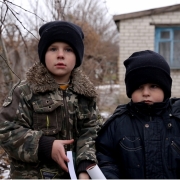
― “What's your name?” I tried to talk to one.
― “Arsen”, answered the boy mispronouncing ‘r’.
― “And your brother’s name?”
― “Ismail”
― “How old are you, Arsen?”
― “Like this,” without hesitation the boy showed his hand with splayed fingers.
Meanwhile, their mother fills out the necessary papers ― a questionnaire that confirms she has got the relief, and then signs the form. Charity givers from the German fund Muslimehelfen helped to purchase 80 tons of coal to needy families in Kherson oblast. However, the fact a person got the assistance must be documented. To achieve coal and firewood each person must fill in the profile, sign in the form and make a photo while standing near the sacks, and a special banner. Winter Relief is a benefit launched by German Muslims to provide the Ukrainian fellow-believers with assistance.
“This is the fourth time we gave out coal to local residents in winter, due to our collaboration with Muslimehelfen,” says Hamza Isa. “There are many people in need in Novooleksiyivka and neighbouring villages. Such help is significant for them”.
Hamza is a representative of Alraid All-Ukrainian association. This public organisation, together with RAMU Umma, is the main partners of the German fund here in Ukraine. The fruitful cooperation has been going on for over five years. And since the beginning it has resulted in many charitable events.
― Last year, we distributed more than thirty tons for 55 families, ― further says Hamza. ― But, in fact, there are many more people who really need this help. You can see the conditions, which people live in here.
Novooleksiyivka has recently acquired the status of the main transport hub on the way to Crimea, but it barely differs from other urban-type settlements. Many streets are unpaved and without street lighting. There are no opportunities to find a good job either. Many young people move out, and old people are left alone, living out their days in old houses bought many years ago.
“This year, God willing, we will give out 80 tons of coal and 120 cubic meters of firewood”, says Hamza, “not only in Novooleksiyivka. Almost all the neighbouring settlements also aren’t supplied with gas, and a lot of low-income Crimean Tatar families also live there”.
“Okay, let's go!” Imam Usein interrupts our talk. “Eden-aha, who is next in the list?”
Eden-aha, a short elderly man, is a local community activist. He holds a beat-up notebook in which people whom the coal is to be brought first are listed. That morning, he and Usein, were sitting in the mosque, and checking the list to make sure they had not forgotten anyone to include in it.
“There is an old woman in the next street. She also lives alone”, replies Eden-aha. – “The truck has gone for coal. We have to wait a little”.
“Alright”, nods Usein. “They will come back quickly; other guys are still loading firewood at the base”.
Their main assistants are about a dozen young guys and men. Most of them regularly attend the mosque and volunteered to help. They load coal and firewood onto vehicles, unload and carry them into the courtyards. Their clothes and hands are already black because of coal dust. The frosty December wind runs to the bones. But the men don’t care about that, as they have to do as much as they can.
Fifteen minutes later we came to another household:
“I remember you,” says another old woman. “You came last year too. You said that all this relief was from Germany. This guy I remember the most,” says she looking at our photographer.
“Of course we did. We come every year, but you remember only the photographer”, say we joking.
The old woman dryly laughed with us. For many of these old people, such an opportunity just to talk with strangers, tell about themselves, laugh, means no less than a charitable support. Some of them cannot hold back their tears. “So much honour for us,” they say. They are interested in everything: Who we are, where we are from, why we came, where our parents live. Many of them invited to the house ...
In the next household, Fatme-khanum invites us to come in. She is tilting just brought coal into the fired stove.
“You got here in time, children,” she says. “Yesterday I almost died of the cold, there was nothing to heat the house with! Today, in the morning, I got some coal, but it was so little ― for a couple of days, that’s all. But now there is nothing to worry about – It will be enough for a long time”.
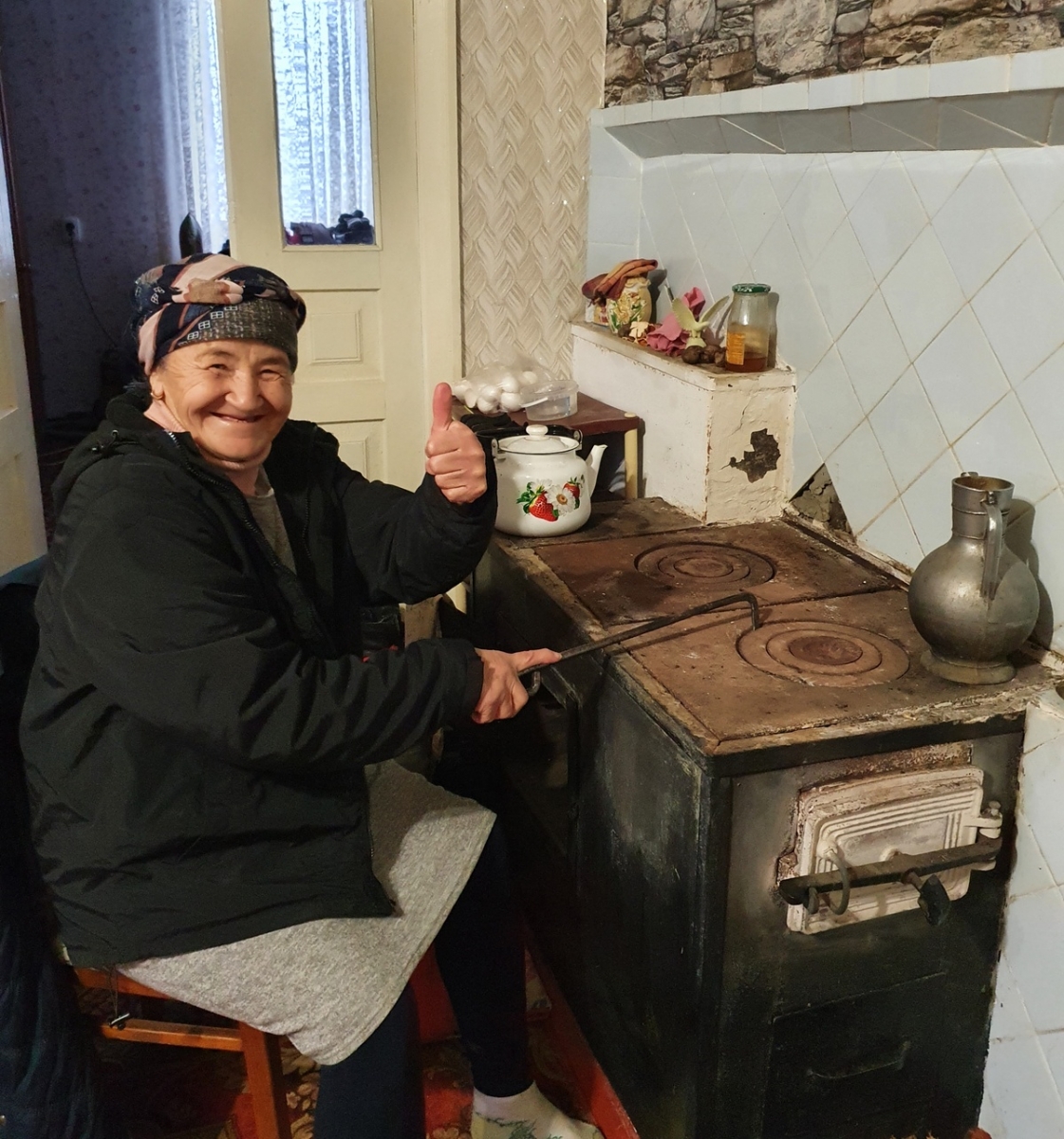 She smiles cheerfully and we ask her to raise her thumb up for a photo. Fortunately, during these days we did a lot of similar photos with joyful, smiling faces and gratefully raised thumbs up.
She smiles cheerfully and we ask her to raise her thumb up for a photo. Fortunately, during these days we did a lot of similar photos with joyful, smiling faces and gratefully raised thumbs up.
“Children, please help yourself with these small cakes,” Fatme-khanum points at a plate on the table.
“No, no, thanks! We need to move on,” say we.
“Please take! You, guys, felt the smell of food…” an old lady keeps insisting, “and probably have been already tired for the whole day. Here you are!”
Almost in every household, in spite of poverty, simplicity of their homes, poor housing conditions, people invite to come in, try to treat with tea, coffee, and some food, and express their gratitude over and over again.
It is already dark outside when the guys bring the sacks into the last household for today. The hostess persistently invites us to come in:
“You won't go anywhere! I have already put a jezve on the stove, coffee is almost ready. So, come on in!” Her intonation does not accept any objection.
Indeed, we have nowhere to hurry to. Today the work is over, that’s why we accepted her invitation. Ten minutes later, everyone was drinking hot coffee, sitting at a simple table and having a calm talk. I looked at the faces of Imam Usein, Eden-aga activist, Hamza and others. For the first time today, I saw a kind of relaxation their faces expressed and even peace. And a little later I understood ― they were warm. That warm came out of the feeling they managed to warm the houses of four dozen families today. And they will warm another two hundred houses in the coming days.
Dilyaver Saidakhmetov, especially for “Islam in Ukraine”

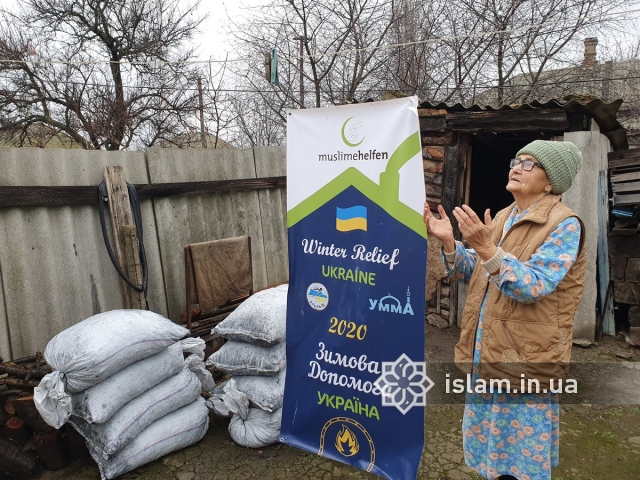
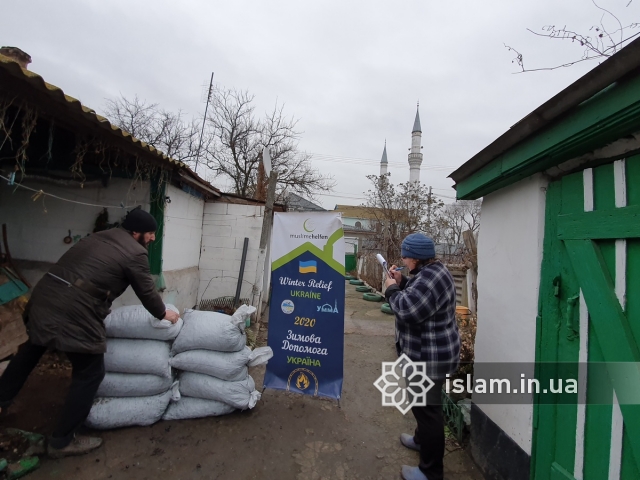
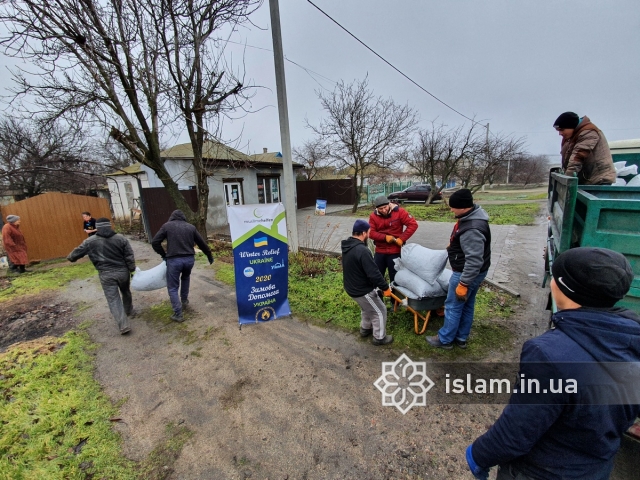
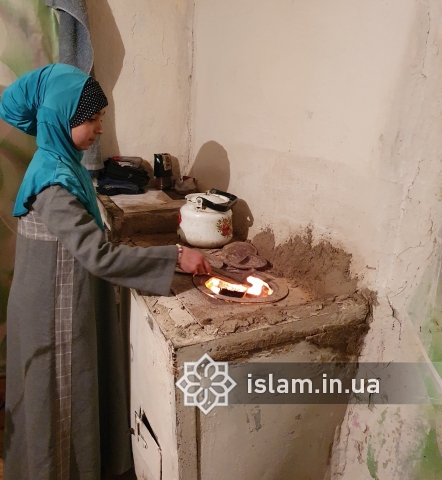
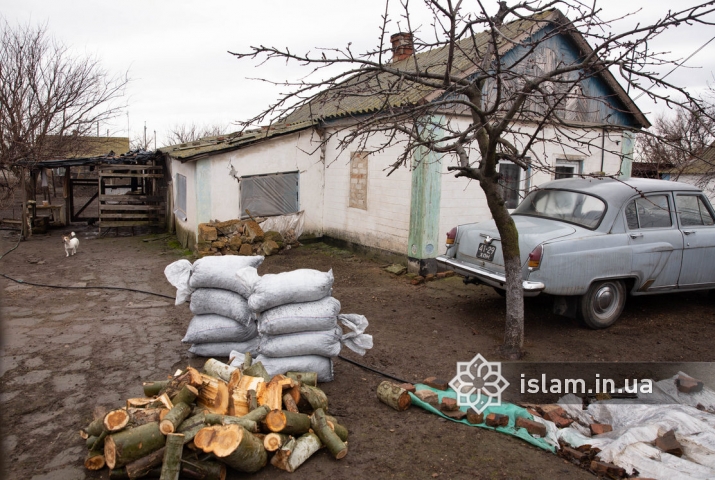
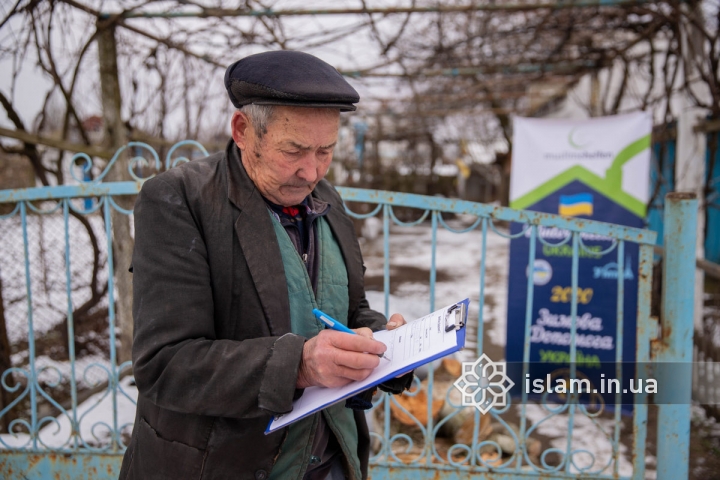


1 Comment
KashifKhan replied on
Ас-саламу алейкум, брат Ахмед Тамим, Верховный муфтий Украины. Надеюсь, вы в безопасности и здоровы в нынешнем конфликте. Меня беспокоит бедственное положение ни в чем не повинных мусульман, вовлеченных в войну. Я вырос в Лондоне и гражданин Великобритании. Хочу выйти замуж после развода 6 лет назад. Я хотел бы, чтобы ваша помощь, если женщина-мусульманка, вдова, разведенная или незамужняя, хочет выйти замуж, я предлагаю жениться на ней, и, иншалла, обеспечить уважительный и любящий халяльный брак. Я могу выслать вам свои данные, и если семья или женщина заинтересуются, я предложу ей Найку либо в Украине, если она в безопасности, либо здесь, со мной. Я буду благодарен вам за вашу помощь в этом святом намерении, и да поможет нам всем Аллах Амин С уважением Кашиф Хан
Add new comment
Log in or register to post comments